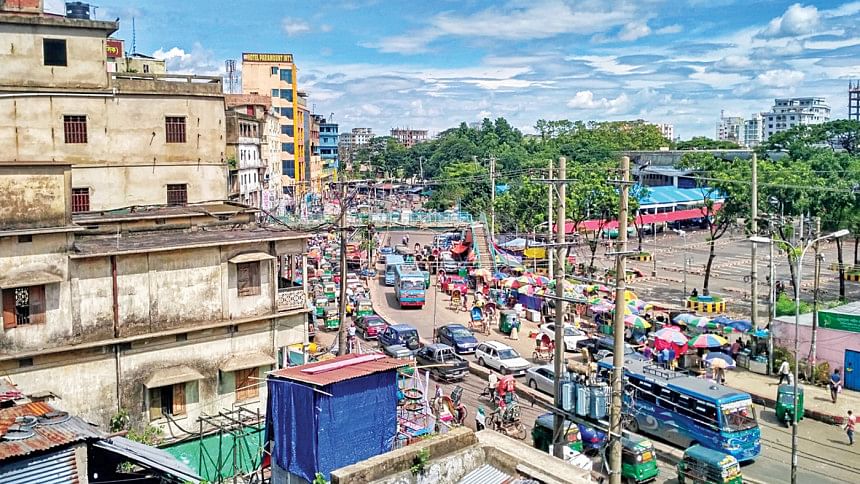Chatga With a Chandrabindu

I
One of the first sentences I ever heard was my late mother jumping in joy, cheering, "Chatga jai to my Nanu bari!" It was no ordinary Chatga. A Chatga with a chandrabindu.
II
I was born in Chatga. My mother's family has been living there since the partition of British India in 1947. My mum and dad met in Chatga when my father was teaching in Chittagong College. Ever since I knew I was me, I've been visiting Chatga once in a while. Over the years, I've seen the change of a city, while nothing changed at all.
III
Chatga is unique. It's a city that stands on a river, the Karnaphuli, and is the main gateway to the sea, the Bay of Bengal. The city is a mixture of sweet and salt water.
Culturally, Chatga is unique from the rest of Bangladesh. It maintains a link with what was Purba Bangla that became today's Bangladesh, and the middle ages kingdom, Arakan, part of which falls in today's Rakhine in Myanmar. That nasal tone in Chatga has many shades only travellers can appreciate.
IV
Chatga of the 1970s was a beautiful place. Except for pockets like Agrabad, the city maintained a character separate from Bangladesh. Load-shedding had its romanticism. The light of the pidim in the tea stalls, the hajaks in the shops, and the hurricane lamps and candles at home, are now all nostalgia. The smell of charcoal from a kitchen coupled with the fragrance of loitta shutki or kala bhuna evoke memories of a childhood of my Nanu bari. The walk from Nanu bari in Lalkhan Bazar around Batali Hill is a walk that's still not found anywhere in Bangladesh.
V
The change of the city was just a matter of time. In the 1990s, Bangladesh started to enjoy economic growth. Dhaka and Chatga were the first beneficiaries and also the first victims of a long-lasting economic prosperity. Chatga started to look like Dhaka. Nostalgia was about to vanish. High rises sprouted from nowhere. Modern shopping malls overshadowed Chittagong New Market, which still remains the only market in Bangladesh where you can ride a cycle from the ground to the top floor through a spiral stair.
Physical change was one side. Natural changes were the other. When it rains on the plains, it rains in Chatga. Rains can continue for a week. Yet, in my childhood because of high drainage and natural canals, there would never be water-logging. That's not the case now. Development always comes at a price, but it's sad, when it comes at the price of nature.
VI
Chatga, with a chandrabindu, has had different connotations for me. In childhood, the attraction was my Nanu. There weren't mobile phones in those days. Nanu would wait patiently for us to arrive. No prize for guessing right. A warm meal would be waiting. Now the attraction of Nanu bari is Chhoto Mami. She does the same. Patiently waits for us to arrive. In spite of all the changes, not much has really changed.
VII
What has changed forever is my late mother. She now rests in peace with my Nana, Nanu and other members of our family in the graveyard of Garibullah Shah Shaheb's Mazar, a small walk from our house. Chatga jai, in the nasal tone, now rings the same bell, but now I go to visit my mummy, knowing I'll visit her and other members of my maternal family who are now chapters of "the book of the dead".
Asrar Chowdhury teaches Economics in classrooms. Outside, he watches Test cricket, plays the flute and listens to music and radio podcasts. Email: [email protected] or [email protected]

 For all latest news, follow The Daily Star's Google News channel.
For all latest news, follow The Daily Star's Google News channel. 



Comments